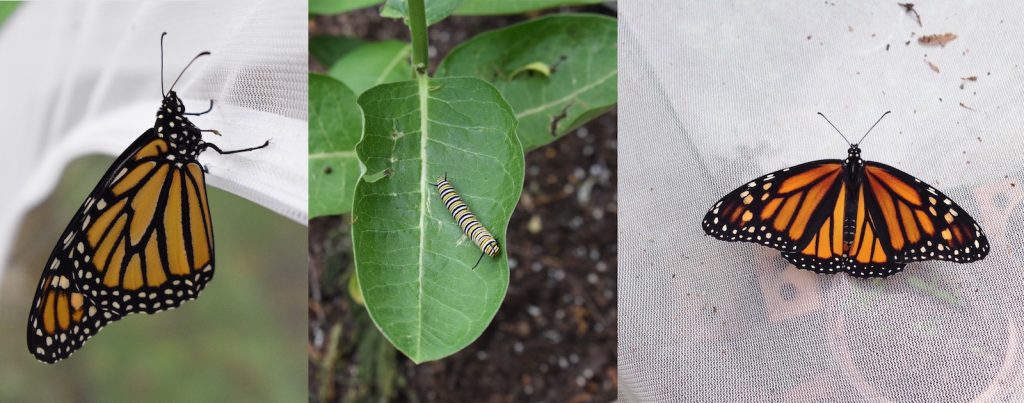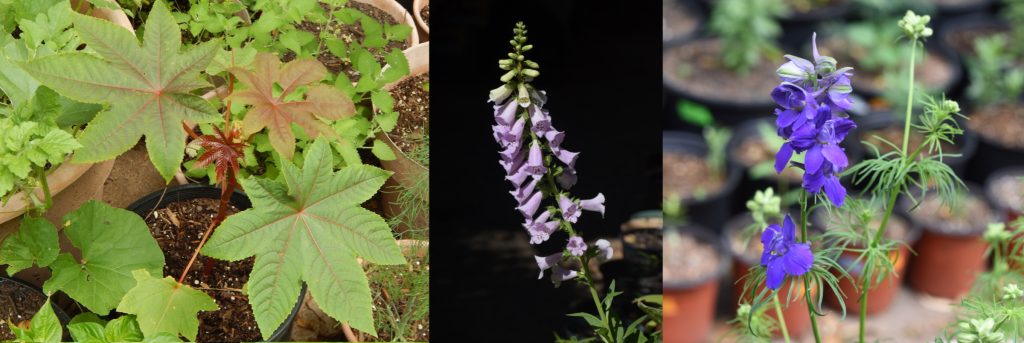In the early spring, seed catalogs will start arriving. I always enjoy the new year’s set of catalogs although one thing in most of them bugs me — safe seed pledges. You’ve likely seen them, a promise that the nursery does not sell seeds for GMOs (genetically modified organisms). Sometimes there’s a little badge that goes along with it. I’m very pro-science and, given the title of this article, you might expect me to launch into a defense of GM plants. But I’m not going to. There’s no need to. Whether you believe GMOs are harmful or have a reasonable grasp of genetics, safe seed pledges are complete rubbish.
Why? Because GM seeds are not available to the public. No nursery anywhere sells GM seeds to private individuals. If you are a farmer, you can purchase GM field corn, soy, alfalfa, cotton, canola, sugar beets, and . . . that’s basically it. There are a couple other GM crops available, but they are mostly grown outside the US. (Wikipedia maintains a list of what GM crops are available as well as how much of each is being grown.) There certainly are not GM varieties for the vast majority of garden vegetables and flowers. What about the Flavr Savr tomato, you might ask? It’s not being produced anymore.
Nurseries participating in the official Safe Seed Pledge are pledging not to sell you something they don’t have, cannot sell, and in the vast majority of cases doesn’t exist. If you believe that GMOs are a distinct class of organisms that are harmful to humans or the environment, they are treating you like a gullible rube. Some even go so far as to say, “We will not knowingly buy or sell and genetically modified seeds or plants,” as if there are unscrupulous seed suppliers out there selling GMO rutabagas to unsuspecting nurseries on the sly. Farmers have to sign contracts specifying what they can and cannot do with their seed when they buy GMO crops. There’s no way a nursery could unknowingly buy GM seed. And they know this. Safe seed pledges are “protecting” you from something that doesn’t exist. It’s like Old Spice certifying that Krakengärd shampoo will keep you safe from krakens.
Understanding GMOs requires you to know a bit of genetics and molecular biology. How they fit into our food choices requires you to understand a little about plant breeding and the history of agriculture. For those who are acquainted with these things, it’s annoying to see nurseries flog for an anti-science position at a time when conspiracy theories and “alternative facts” are having a large negative effect on our country. For a while, almost everything in the supermarket was labelled gluten-free. You could buy gluten-free sugar and gluten-free salt. You could also buy gluten-free vegetables, gluten-free fruits, gluten-free eggs and — I am not kidding — gluten-free water. Were the companies selling these products making life better for people avoiding gluten? No, none of those items ever contained gluten. Gluten comes from wheat (and some gluten-like compounds, that can cause problems for celiacs, come from related cereals). A lot of companies preyed on the scientific ignorance of people to make a buck, just as nurseries tauting their pledges not to sell GMO seeds are.
So that’s my first gardening post of the Beer and Gardening phase of this website. I hope you like it. This is not the most popular sentiment among gardeners, but I am not alone in holding it. And finally, I solemnly pledge to all my readers to supply the type of gardening knowledge that will keep you safe from kraken attacks, which kill the exact same number of people as GMOs do each year. (What a coincidence, huh?) I care that much about you.














Recent Comments